Description: Ken Burns TV series and shows on Prohibition, Jazz, Baseball, Civil War, Statue of Liberty, Brooklyn Bridge, WW II, early age of radio, Vietnam, Country Music, Lewis & Clark, Frank Lloyd Wright & more
Creator: expresso
Posted: 5 years ago
|
|
Favorite
19 favorites
1708 views
|
|
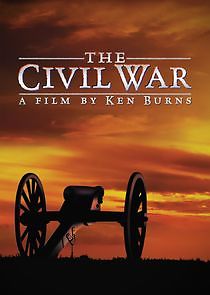
info
|
TV Show:
The Civil War
( 1990 )
Between 1861 and 1865, Americans made war on each other and killed each other in great numbers - if only to become the kind of country that could no longer conceive of how that was possible. What began as a bitter dispute over Union and States' Rights, ended as a struggle over the meaning of freedom in America.
|
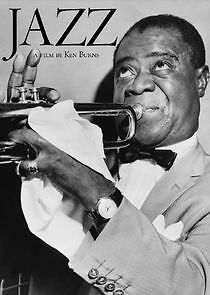
info
|
TV Show:
Jazz
( 2001 )
This series explores the history of the major American musical form. We track its development in African American culture, its rise to prominence with its golden age of popularity spanning from the 1920's to the mid 1940's both in its original form and in Swing through its popular decline and the rise of vital new sub-genres into the present day. Along the way, we learn of the lives and work of major contributors to the form such as Louis Armstrong, Duke Ellington, Billie Holiday, Benny Goodman, Charlie "Bird" Parker and many others who helped form Jazz into the vibrant musical form it is. Moreover, we see how the music reflected the political and social issues of the African American community over the course of the form's history.
|
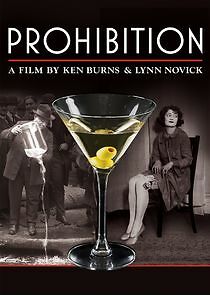
info
|
TV Show:
Prohibition
( 2011 )
Prohibition tells the story of the rise, rule, and fall of the Eighteenth Amendment to the U.S. Constitution and the entire era it encompassed.
|
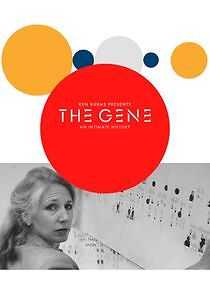
info
|
TV Show:
The Gene: An Intimate History
( 2020 )
The Gene: An Intimate History brings vividly to life the story of today's revolution in medical science through present-day tales of patients and doctors at the forefront of the search for genetic treatments, interwoven with a compelling history of the discoveries that made this possible and the ethical challenges raised by the ability to edit DNA with precision.
|

info
|
|
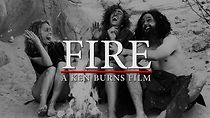
info
|
|
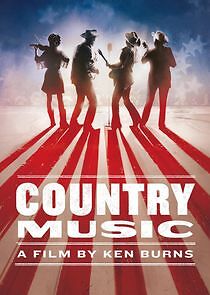
info
|
TV Show:
Country Music
( 2019 )
Country Music chronicles the history of a uniquely American art form, rising from the experiences of remarkable people in distinctive regions of our nation. From southern Appalachia's songs of struggle, heartbreak and faith to the rollicking western swing of Texas, from California honky tonks to Nashville's Grand Ole Opry, the series follows the evolution of country music over the course of the twentieth century, as it eventually emerged to become America's music.
|
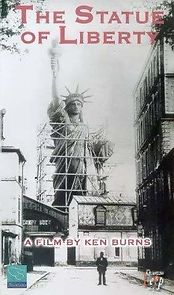
info
|
Movie:
The Statue of Liberty
( 1985 )
Documentary showing the history of the world-famous Statue of Liberty in New York harbor.
|
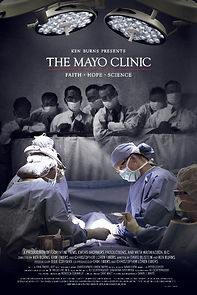
info
|
Movie:
The Mayo Clinic, Faith, Hope and Science
( 2018 )
The Mayo Clinic: Faith - Hope - Science tells the story of a unique medical institution that has been called a "Medical Mecca," the "Supreme Court of Medicine," and the "place for hope where there is no hope." The Mayo Clinic began in 1883 as an unlikely partnership between the Sisters of Saint Francis and a country doctor named William Worrall Mayo after a devastatin...Read all
|

info
|
Movie:
Ken Burns: On Story
( 2012 )
What makes a great story? For legendary filmmaker Ken Burns, the answer is both complicated and personal. In this short documentary about the craft of storytelling, he explains his lifelong mission to wake the dead.
|
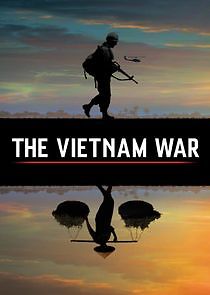
info
|
TV Show:
The Vietnam War
( 2017 )
In an immersive 360-degree narrative, Ken Burns and Lynn Novick tell the epic story of the Vietnam War as it has never before been told on film. The Vietnam War features testimony from nearly 100 witnesses.
|
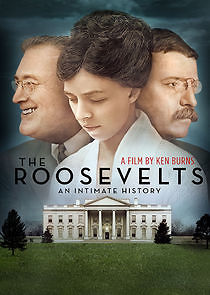
info
|
TV Show:
The Roosevelts: An Intimate History
( 2014 )
The Roosevelts: An Intimate History chronicles the lives of Theodore, Franklin, and Eleanor Roosevelt, three members of the most prominent and influential family in American politics. It is the first time in a major documentary television series that their individual stories have been interwoven into a single narrative. This seven-part, fourteen-hour film follows the Roosevelts for more than a century, from Theodore's birth in 1858 to Eleanor's death in 1962. Over those years, Theodore would become the 26th President of the United States, and his beloved niece, Eleanor, would marry his fifth cousin, Franklin, who became the 32nd President of the United States. Together, these three individuals not only redefined the relationship Americans had with their government and with each other, but also redefined the role of the United States within the wider world. The series encompasses the history the Roosevelts helped shape: the creation of National Parks, the digging of the Panama Canal, the passage of innovative New Deal programs, the defeat of Hitler, and the postwar struggles for civil rights at home and human rights abroad. It is also an intimate human story about love, betrayal, family loyalty, personal courage, and the conquest of fear.
|
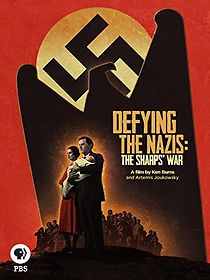
info
|
Movie:
Defying the Nazis: The Sharps' War
( 2016 )
Defying the Nazis: The Sharps' War: Waitstill Sharp, a Unitarian minister, and Martha Sharp, a trained social worker, in February 1939, boldly commit to a life-threatening mission in Europe to assist refugees.
|
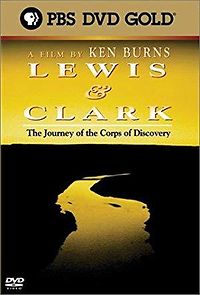
info
|
|
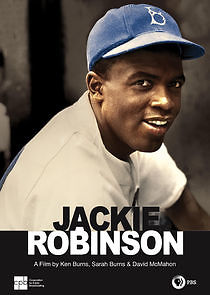
info
|
TV Show:
Jackie Robinson
( 2016 )
Jackie Robinson explores how the civil rights movement dovetailed with Robinson's baseball career.Jack Roosevelt Robinson rose from humble origins to cross baseball's color line and become one of the most beloved men in America. A fierce integrationist, Robinson used his immense fame to speak out against the discrimination he saw on and off the field, angering fans, the press, and even teammates who had once celebrated him for "turning the other cheek." After baseball, he was a widely-read newspaper columnist, divisive political activist and tireless advocate for civil rights, who later struggled to remain relevant as diabetes crippled his body and a new generation of leaders set a more militant course for the civil rights movement.
|
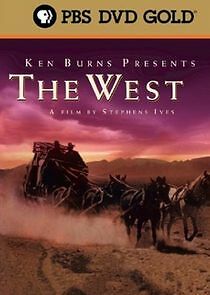
info
|
TV Show:
The West
( 1996 )
The West is a series that includes stories of the Native American experience, from the era before Europeans appeared on the landscape to the tragic days of Sand Creek, Washita and Wounded Knee; stories of the Spanish West, from the times of the conquistadors' expeditions to the emergence of the barrio as an enclave of cultural traditions; pioneer stories from the Oregon Trail and the Mormon Exodus; war stories from San Jacinto and Lawrence, Kansas; stories of miners and missionaries, ranchers and railroaders, educators and industrialists. It is a chronicle that captures all the grandeur of the West and all the energy of its people, and one that probes the conflicting visions and competing values that made an American nation on this vast land.
|
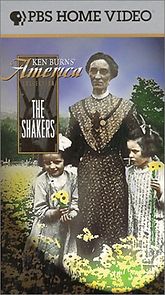
info
|
|

info
|
TV Show:
Cancer: The Emperor of All Maladies
( 2015 )
Cancer: The Emperor of All Maladies tells the complete story of cancer, from its first description in an ancient Egyptian scroll to the gleaming laboratories of modern research institutions. At six hours, the film interweaves a sweeping historical narrative; with intimate stories about contemporary patients; and an investigation into the latest scientific breakthroughs that may have brought us, at long last, to the brink of lasting cures.
|
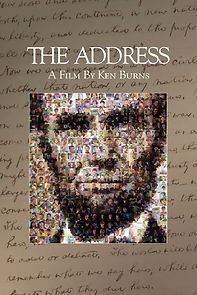
info
|
Movie:
The Address
( 2014 )
Students of a special boarding school for kids with learning disabilities are challenged to learn about and recite the Gettysburg Address.
|
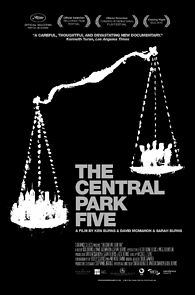
info
|
Movie:
The Central Park Five
( 2014 )
A documentary that examines the 1989 case of five black and Latino teenagers who were convicted of raping a white woman in Central Park. After having spent between 6 and 13 years each in prison, a serial rapist confessed to the crime.
|
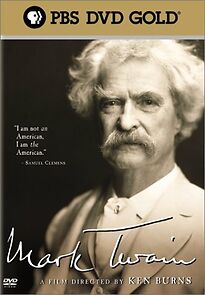
info
|
Movie:
Mark Twain
( 2002 )
Ken Burns, the premiere documentarian of Americana, tackles the life of Mark Twain, the first writer with a uniquely American voice. In this installment in Burns' "American Lives" series, the two 2-hour episodes explore a side of Twain that is unfamiliar to many. Widely regarded as the funniest person of the 19th century, Twain suffered through severe personal tragedies and lack of business sense that brought him to the brink of financial ruin on several occasions. Includes interviews with writers William Styron and Arthur Miller and actor Hal Holbrook (who has portrayed Twain in a one-man play each year for over 50 years).
|
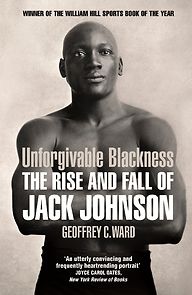
info
|
|
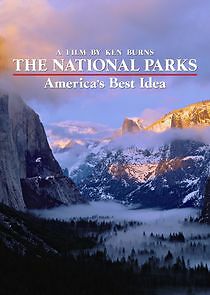
info
|
TV Show:
The National Parks: America's Best Idea
( 2009 )
Filmed over the course of more than six years at some of nature's most spectacular locales – from Acadia to Yosemite, Yellowstone to the Grand Canyon, the Everglades of Florida to the Gates of the Arctic in Alaska - The National Parks: America's Best Idea is nonetheless a story of people: people from every conceivable background – rich and poor; famous and unknown; soldiers and scientists; natives and newcomers; idealists, artists and entrepreneurs; people who were willing to devote themselves to saving some precious portion of the land they loved, and in doing so reminded their fellow citizens of the full meaning of democracy.
|
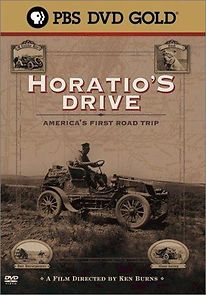
info
|
|
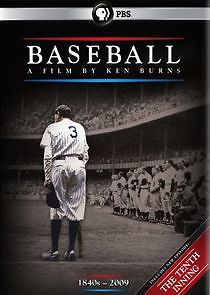
info
|
TV Show:
Baseball
( 1994 )
Ken Burns relates the history of baseball in a fashion similar to that of his Civil War mini series. Old-time photos and illustrations depict the games early years, while newsreels and video clips highlight more recent developments. Players and participants speak in their own words, and sports writers and broadcasters offer commentary on the sport and events they witnessed.
|
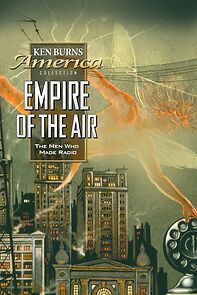
info
|
Movie:
Empire of the Air: The Men Who Made Radio
( 1991 )
For 50 years, radio dominated the airwaves as the first mass medium. Ken Burns examines the lives of three men who shared the responsibility for its invention and early success.
|
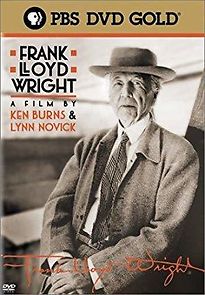
info
|
Movie:
Frank Lloyd Wright
( 1998 )
This film illustrates the life and work of the American architect. We follow the development of his work and his turbulent family life amidst scandal and tragedy. Despite all the difficulties of his personal life, Wright rises above all and beats all the odds to design some of the most famous buildings using brilliant and distinctively innovative designs that only his genius could create.
|

info
|
TV Show:
The War
( 2007 )
The War, a seven-part series directed and produced by Ken Burns and Lynn Novick, tells the story of the Second World War through the personal accounts of a handful of men and women from four quintessentially American towns: Mobile, Alabama; Sacramento, California; Waterbury, Connecticut; and Luverne, Minnesota. The series explores the most intimate human dimensions of the greatest cataclysm in history — a worldwide catastrophe that touched the lives of every family on every street in every town in America — and demonstrates that in extraordinary times, there are no ordinary lives. Including interviews and archive footage, the film honors the bravery, endurance, and sacrifice of the generation of Americans who lived through what will always be known simply as "The War."
|
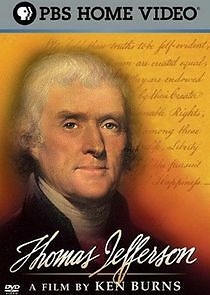
info
|
TV Show:
Thomas Jefferson
( 1997 )
Thomas Jefferson is a two-part portrait of one of the most fascinating and complicated figures ever to walk across America's public stage – our enigmatic and brilliant third president and founding father. Thomas Jefferson embodies within his own life the most profound contradictions of American history: as the author of our most sacred document, the Declaration of Independence, he gave voice to our fervent desire for freedom, but he also owned more than 150 human beings and never saw fit to free them.Jefferson also made himself into a true renaissance man – a scholar, a philosopher, a diplomat, an aesthete, and an architect. As a young man, he was transformed by the fire of the Enlightenment into America's most articulate voice for human liberty. Torn between his desire for a serene family life at Monticello and his passion for politics, Jefferson endured ceaseless, heartrending personal loss. As President, he helped create the first American political party, and with the Louisiana Purchase, more than doubled the size of the new nation. Jefferson's last years were spent founding the University of Virginia and reestablishing his friendship, after decades of estrangement, from his onetime rival John Adams. His influence on and vision for our country reverberates to this day.
|
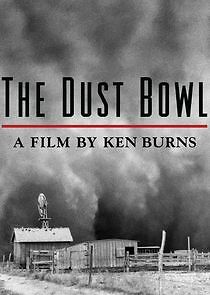
info
|
TV Show:
The Dust Bowl
( 2012 )
The Dust Bowl chronicles the worst man-made ecological disaster in American history, in which the frenzied wheat boom of the "Great Plow-Up", followed by a decade-long drought during the 1930s nearly swept away the breadbasket of the nation. Vivid interviews with twenty-six survivors of those hard times, combined with dramatic photographs and seldom seen movie footage, bring to life stories of incredible human suffering and equally incredible human perseverance. It is also a morality tale about our relationship to the land that sustains us—a lesson we ignore at our peril.
|
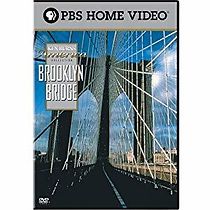
info
|
Movie:
Brooklyn Bridge
( 1981 )
This documentary chronicles the world-famous Brooklyn Bridge in New York City. The difficult construction process is described in interesting detail; later parts of the film interview current notables who describe the effects that the Brooklyn Bridge has had upon New York society and beyond.
|
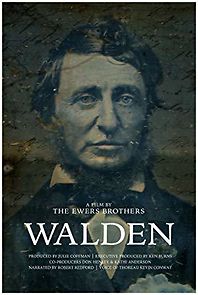
info
|
Movie:
Walden
( 2017 )
In 1854, noted American transcendentalist Henry David Thoreau published his influential book 'Walden; or, Life in the Woods' about his attempt to live self-sufficiently in his cabin in the woods near Walden Pond, MA for two years.
|
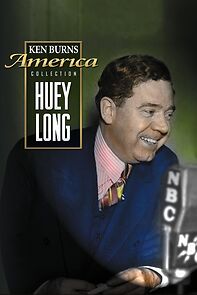
info
|
Movie:
Huey Long
( 1985 )
Ken Burns' portrait of Louisiana governor/U.S. senator Huey Long.
|
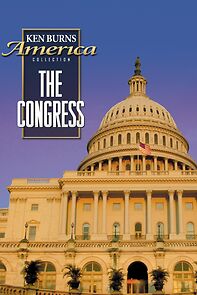
info
|
Movie:
The Congress
( 1989 )
The U. S. Congress is one of the country's most important and misunderstood institutions. Ken Burns tells the story behind this branch of government.
|
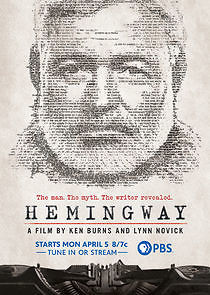
info
|
TV Show:
Hemingway
( 2021 )
Hemingway interweaves a close study of the biographical events of the author's life with excerpts from his fiction, non-fiction and short stories, informed by interviews with celebrated writers, scholars and Hemingway's son, Patrick. The filmmakers explore the painstaking process through which Hemingway created some of the most important works of fiction in American letters, including novels The Sun Also Rises, A Farewell to Arms, For Whom the Bell Tolls and The Old Man and the Sea; short stories "Hills Like White Elephants," "The Short and Happy Life of Francis Macomber," "Up in Michigan," "Indian Camp" and "The Snows of Kilimanjaro;" as well as the nonfiction works Death in the Afternoon and A Moveable Feast.
|
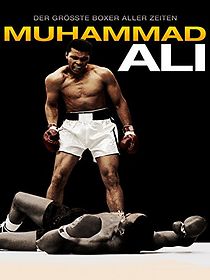
info
|
Movie:
Muhammad Ali (TV Movie)
An in-depth look at the life of boxer, Muhammad Ali, including his years as an activist and philanthropist.
|
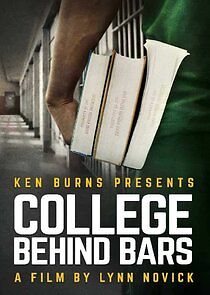
info
|
TV Show:
College Behind Bars
( 2019 )
Shot over four years in maximum and medium security prisons in New York State, the four-hour film takes viewers on a stark and intimate journey into one of the most pressing issues of our time – our failure to provide meaningful rehabilitation for the over two million Americans living behind bars. Through the personal stories of the students and their families, the film reveals the transformative power of higher education and puts a human face on America's criminal justice crisis. It raises questions we urgently need to address: What is prison for? Who has access to educational opportunity? Who among us is capable of academic excellence? How can we have justice without redemption?
|
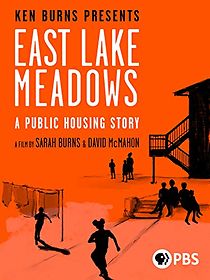
info
|
Movie:
East Lake Meadows: A Public Housing Story
( 2020 )
The history of the East Lake Meadows public housing project in Atlanta and the people who lived there from 1970 to its demolition in 2000, with special emphasis on the activism of Eva Davis asserting the rights of the tenants.
|

info
|
TV Show:
Benjamin Franklin
( 2022 )
Ken Burns's two-part, four-hour documentary, Benjamin Franklin, explores the revolutionary life of one of the 18th Century's most consequential and compelling personalities, whose work and words unlocked the mystery of electricity and helped create the United States. Franklin's 84 years (1706-1790) spanned an epoch of momentous change in science, technology, literature, politics, and government — fields he himself advanced through a lifelong commitment to societal and self-improvement.
|
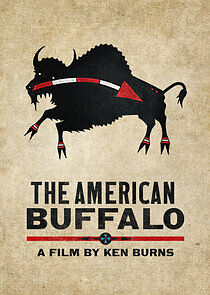
info
|
TV Show:
The American Buffalo
( 2023 )
The American Buffalo takes viewers on a journey through more than 10,000 years of North American history and across some of the continent's most iconic landscapes, tracing the animal's evolution, its significance to the Indigenous people and the landscape of the Great Plains, its near extinction, and the efforts to bring the magnificent mammals back from the brink.For thousands of generations, buffalo (species bison bison) have evolved alongside Indigenous people who relied on them for food and shelter and, in exchange for killing them, revered the animal. The stories of Native people anchor the series, including the Kiowa, Comanche, and Cheyenne of the Southern Plains; the Lakota, Salish, Kootenai, Mandan-Hidatsa, and Blackfeet from the Northern Plains; and others.Ken Burns recounts the tragic collision of two opposing views of the natural world—and the unforgettable characters who pointed the nation in a different direction.
|
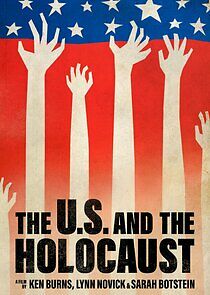
info
|
TV Show:
The U.S. and the Holocaust
( 2022 )
The U.S. and the Holocaust explores America's response to one of the greatest humanitarian crises in history. It is partly inspired by the United States Holocaust Memorial Museum's "Americans and the Holocaust" exhibition and supported by its historical resources. The film examines the rise of Hitler and Nazism in Germany in the context of global antisemitism and racism, the eugenics movement in the United States, and race laws in the American south. The series sheds light on what the U.S. government and American people knew and did as the catastrophe unfolded in Europe.Americans consider themselves a "nation of immigrants." Still, as the catastrophe of the Holocaust unfolded in Europe, the United States proved unwilling to open its doors to more than a fraction of the hundreds of thousands of desperate people seeking refuge. Through riveting firsthand testimony of witnesses and survivors who, as children, endured persecution, violence, and flight as their families tried to escape Hitler, this series delves deeply into the tragic human consequences of public indifference, bureaucratic red tape, and restrictive quota laws in America. Did the nation fail to live up to its ideals? This is a history with which to be reckoned.Combining the first-person accounts of Holocaust witnesses and survivors and interviews with leading historians and writers, this series dispels competing myths that Americans either were ignorant of the unspeakable persecution that Jews and other targeted minorities faced in Europe or that they looked on with callous indifference. The film tackles a range of questions that remain essential to our society today, including how racism influences policies related to immigration and refugees, as well as how governments and people respond to the rise of authoritarian states that manipulate history and facts to consolidate power.
|
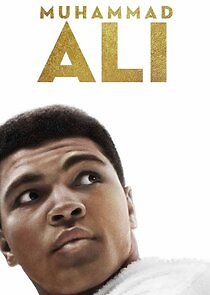
info
|
TV Show:
Muhammad Ali
( 2021 )
Muhammad Ali was one of the best-known men of the 20th Century. This three-time heavyweight boxing champion captivated millions of fans throughout the world with his mesmerizing combination of speed, grace, and power in the ring and charm and playful boasting outside of it. At the height of his fame, he took American life—the racial prejudices, the religious biases, the role of celebrities, the role of sports in society—and refashioned it in his own image. Ali insisted on being himself unconditionally and became a global icon and inspiration to people everywhere.His brazen outspokenness and unsurpassed boxing skills made him a heroic symbol of black masculinity to African Americans across the country. Yet, at times he seemed to take pride in humiliating his black opponents. In an age of sit-ins and freedom rides aimed at ending segregation, his deep ties to the Nation of Islam, a black nationalist organization that preached separation, made him, for a time, among the most feared and reviled men in the country. At the peak of his ability, he bravely sacrificed his career by refusing to go to war in Vietnam – and though he was condemned for it, Muhammad Ali would later be celebrated as a principled pacifist.He was a faithful Muslim, an unfaithful husband, a proud father, and an adoring son. He was a fearsome warrior who vanquished nearly every opponent but was finally brought down by his stubborn refusal to quit. After boxing, when Parkinson's Syndrome had all but silenced him, he became an international hero, a saint, a symbol of freedom and courage. Today he is one of the most indelible and beloved men in history.
|
|


Yurocalling : definitely, you see how the guy who founded girls gone wild how he's managed to escape jus...